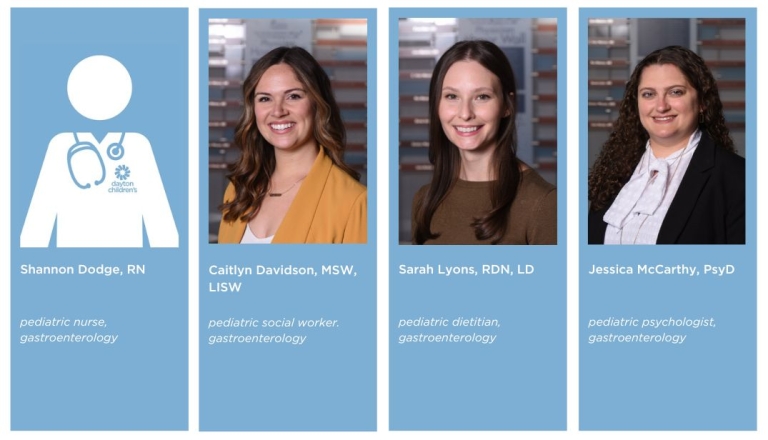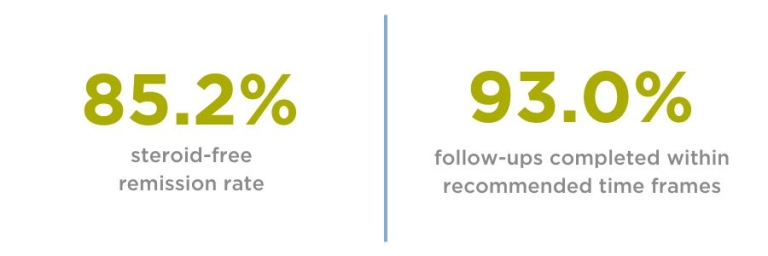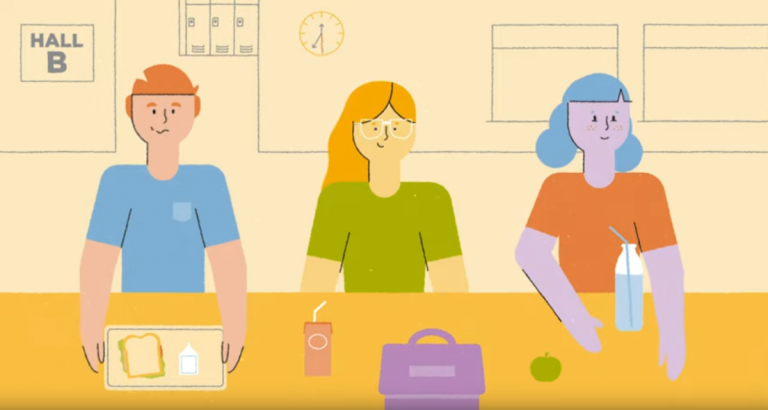inflammatory bowel disease center
Dayton Children's Inflammatory Bowel Disease Center is part of the ImproveCareNow (ICN) network. ICN is a learning health network of care centers with clinicians, researchers, patients, families and improvers working together to transform the health, care and cost for children and youth with Crohn's disease and ulcerative colitis.
By engaging with ICN, the care team at Dayton Children's has seen remission rates increase by more than 20 percent. This means more families no longer require steroids, hospitalization or surgeries. Our current remission rate averages 87%, and we have consistently been above the ICN target of 83% for the last several years.
Dayton Children's provides national leadership for ICN with Shehzad Saeed, MD, FAAP, AGAF as the overall clinical director for ICN's 100+ international care centers, and Kelly Sandberg, MD, MSc as the learning lab co-chair for 34 centers in the United States.
Benefits of the Inflammatory Bowel Disease Center at Dayton Children's:
- Outstanding remission rate
- Expertise in managing patients with severe IBD
- Experience using state-of-the-art imaging
- Leaders in national collaboratives
- Reduced steroid dependency
- Access to educational tools developed at Dayton Children's with national peers
what conditions are treated in the inflammatory bowel disease center?
The two types of IBD are Crohn's disease and ulcerative colitis. There is also IBD unclassified when it is not clear if inflammation is due to Crohn's or ulcerative colitis.
- Crohn's disease causes redness, sores, and swelling or inflammation in the lining of your digestive tract. The inflammation often affects the entire thickness of the bowel wall. It can affect part of the gastrointestinal tract from the mouth to the anus.
- Ulcerative colitis most affects the large intestine (or colon). It causes sores called ulcers that affect the surface of the colon.
how is inflammatory bowel disease diagnosed?
Inflammatory bowel disease can be hard to diagnose, even if the bowel has been damaged over many years. And IBD symptoms often resemble those of other conditions, which may make it difficult for doctors to diagnose.
If IBD is suspected in your child, our specialists will use a variety of tests to make a diagnosis.
what does treatment look like for inflammatory bowel disease?
There are a variety of treatments for IBD in three major categories: medications, nutrition therapy and surgery. We work with families and professionals who would also like to try supplements and natural interventions in addition to standard therapies.
Whether your child was just diagnosed with IBD or has been living with the disease for most of their life, the Dayton Children's Inflammatory Bowel Disease Center provides a comprehensive approach to help your family understand the treatment options that might work best for your child.
Programs within the center:
- New diagnosis program
- Population management program
- Annual visit program
- Pre-visit planning program
Learn more with our IBD resource binder
should my child have IBD surgery?
Each patient is different. Some patients may never need surgery, while others may need it right after diagnosis. This is a decision that patients, families and providers should make together. This is called shared decision-making.
The "Should I have IBD surgery?" web-based tool assesses readiness for IBD surgery by asking a series of questions about the child's disease, treatment options and concerns about surgery. This told was co-designed by experts from pediatric gastroenterology, surgery, psychology, parents and patients from Dayton Children's.
Learn how to use the IBD Decision Support tool
Click here if you would like to participate in a research study using the tool.
Please talk to your provider if you have any questions about surgery.
who will be on my child's IBD care team?

- Gastroenterologist - a pediatric gastroenterologist is a medical doctor who specializes in the diagnosis, treatment and management of disorders related to the digestive system in children.
- Pediatric surgeon - a pediatric surgeon will partner with the gastroenterologist if a child needs surgery for their inflammatory bowel disease.
- Gastroenterology APP - an advanced practice provider (NP or PA) with specialized training in caring for pediatric patients with gastrointestinal issues. This professional runs the annual visit program and is involved with transitions of patients from pediatric to adult care.

- Gastroenterology nurse - a gastroenterology nurse is a registered nurse with specialized training in caring for pediatric patients with gastrointestinal issues. They assist in procedures, administer medications, educate patients and families about treatment plans and provide emotional support.
- Gastroenterology social worker - a gastroenterology social worker provides emotional and practical support to pediatric patients and their families dealing with gastrointestinal disorders. They help navigate medical challenges, connect families with resources and address psychosocial concerns.
- Gastroenterology dietitian - this role involves a dietitian who specializes in working with nutrition needs. They create tailored plans to manage symptoms, improve growth and optimize overall health.
- Gastroenterology psychologist - a pediatric gastroenterology psychologist focuses on the emotional and psychological well-being of young patients with digestive disorders. They help children and families cope with the stress, anxiety and medical health challenges associated with chronic gastrointestinal conditions.

- Inflammatory bowel disease care coordinator - an IBD coordinator is a professional who facilitates care and communication for pediatric patients with inflammatory bowel diseases. They help organize appointments, streamline treatment plans and ensure consistent follow-up care.
- Quality improvement coordinator - a trained professional who assists with the support of the primary ICN team. This professional obtains specialized training in quality improvement methodology and supports the center's data needs.
- Gastroenterology office coordinator - the office coordinator schedules appointments, handles patient family inquiries and manages medical records.


